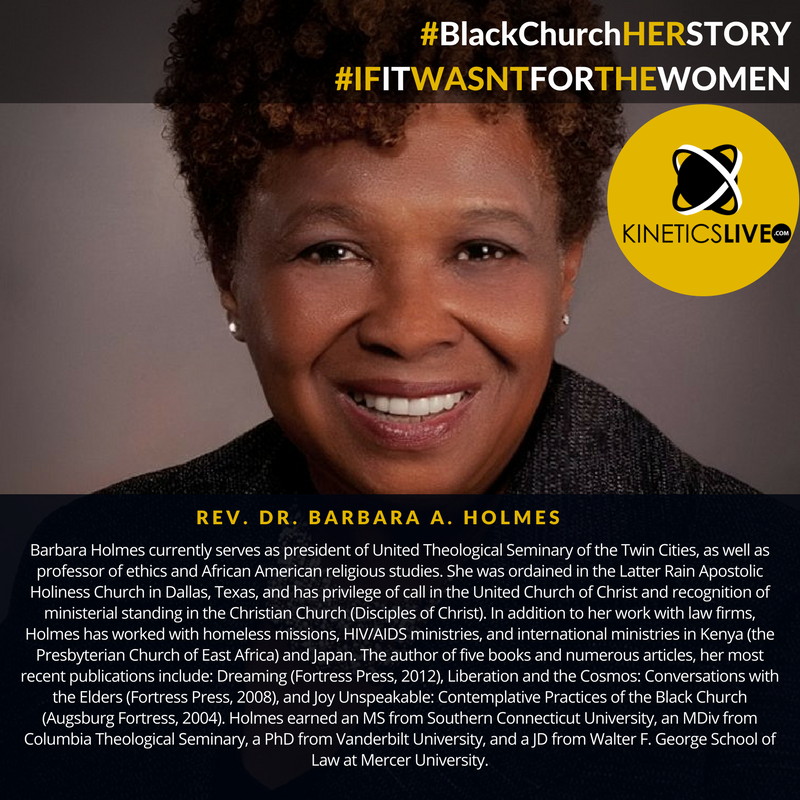Black Women Mystics
Today, I’d like to feature the words of a modern mystic I am honored to know. Dr. Barbara Holmes is a teacher in our own Living School, a former lawyer, professor, and author of several books. She has taught me, our staff, and students so much. I hope you will go deeper with her work beyond today’s excerpt from Joy Unspeakable. I have been telling folks that there are people who talk about God and there are people who know God. Barbara is the latter:
Holiness is a concept that makes ordinary people nervous. . . . The holiness that Jesus describes has less to do with pious character traits and more to do with the hosting of God’s abiding presence. It is not effort but invitation that opens the human spirit to the possibility that God may sojourn with us.
Receptivity is not a cognitive exercise but rather the involvement of the intellect and senses with a spiritual reunion and oneness with God. When this oneness occurs, it is accompanied by heightened spiritual awareness and insight. Contemplative moments also carry with them the potential for mystical encounter which only compounds the difficulty of describing the experience in words. C. S. Lewis’s attempt to describe his own mystical event is a prime example. He says, “I felt as if I were a man of snow at long last beginning to melt. The melting was starting in my back—drip-drip and presently trickle-trickle. I rather disliked the feeling.” [1] His wry comments are clearer than any somber attempt to describe the event with exactitude. Rather, this contemplative moment is a spiritual event that kisses the cognitive but will not be enslaved to its rigidities.
Our twenty-first century ideas about contemplative practices are borrowed from a Christian heritage that relegates contemplation to desert mothers and fathers, anchorites and monastics. Although we have learned much from our Catholic brothers and sisters, there is a rich but neglected legacy in the Protestant tradition. When the word contemplation comes to my mind I want to think of Thomas Merton . . . [and] Martin Luther King, Jr. . . . I want to present Sojourner Truth, Harriet Tubman, Fannie Lou Hamer, Barbara Jordan and all the black congregations that sustained whole communities without fanfare or notice. Like Christianity, contemplative practices come in many forms; these practices have survived and thrived through inculturation and ethnic adaptation. . . .
The human task is threefold. First, the human spirit must connect to the eternal by turning toward God’s immanence and ineffability with yearning. Second, each person must explore the inner reality of his or her humanity facing unmet potential and catastrophic failure with unmitigated honesty and grace. Finally, each one of us must face the unlovable neighbor, the enemy outside of our embrace, and the shadow skulking in the recesses of our own hearts. Only then can we declare God’s perplexing and unlikely peace on earth.
References:
[1] C. S. Lewis, Surprised by Joy: The Shape of My Early Life (Geoffrey Bles: 1955), 22.
Barbara A. Holmes, Joy Unspeakable: Contemplative Practices of the Black Church, 2nd ed. (Fortress Press: 2017), 3-4.

